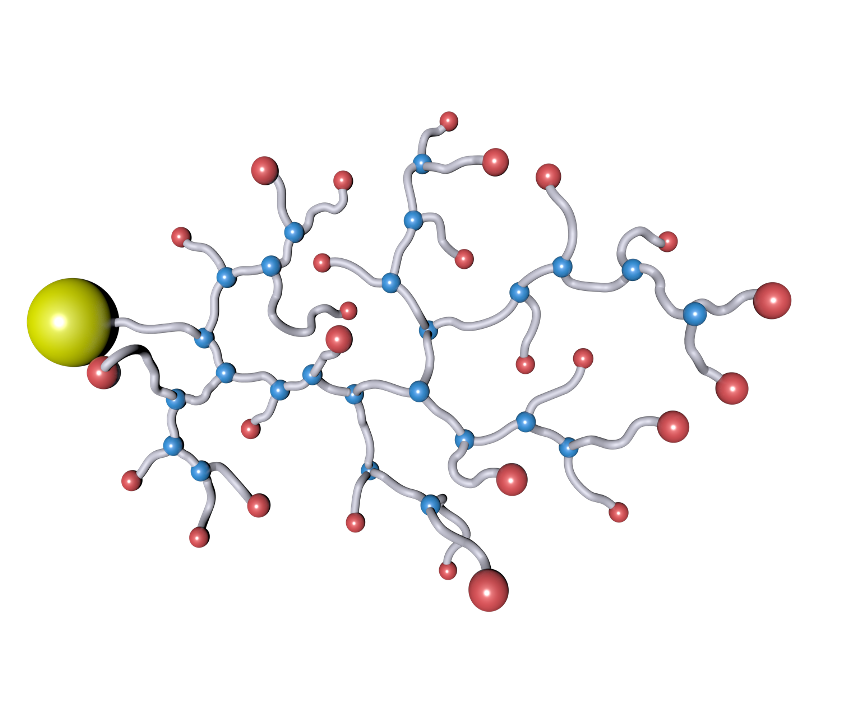Sustainable Polymers: Eco-Friendly Solutions for the Future
Sustainable Polymers: Eco-Friendly Solutions for the Future
Blog Article
Discovering the Varied Applications and Advantages of Polymers in Different Industries
Polymers, with their varied variety of residential or commercial properties and performances, have actually ended up being crucial in different industries, each enjoying one-of-a-kind benefits from their application. Polymers. From enhancing security and performance in the auto sector to reinventing medical devices in the health care sector, polymers play a critical duty. In addition, their environmentally friendly nature is changing the landscape of sustainability techniques. As we dig into the depths of polymers in electronic devices, we reveal cutting-edge advancements, while their structural stability transforms the realm of building and construction and facilities. The pervasive influence of polymers across markets is a testament to their adaptability and adaptability, shaping the future of plenty of fields.
Automotive Sector Applications
Polymers play an essential role in boosting the performance and toughness of different parts within the vehicle sector. These versatile materials are extensively made use of in the production of different parts, ranging from indoor components to under-the-hood applications. One popular usage of polymers in the automobile industry is in the production of light-weight components. By replacing typical steel get rid of polymer-based options, lorries can attain enhanced fuel effectiveness without endangering on toughness or security.

Healthcare Market Advantages
In numerous health care applications, the benefits of making use of polymers are extensively identified for their diverse range of advantageous residential or commercial properties. Polymers play an essential duty in the medical care market due to their versatility, biocompatibility, and cost-effectiveness. Among the main benefits of polymers in health care is their capacity to be tailored to certain needs, such as flexibility, resilience, and biodegradability, making them optimal for a wide variety of medical applications.
Polymer-based products are extensively utilized in medical tools, such as catheters, implants, prosthetics, and drug delivery systems, due to their biocompatibility and capacity to imitate all-natural cells. These products can lower the danger of allergies or denials, improving individual security and outcomes. In addition, polymers are lightweight, making them ideal for wearable medical tools and guaranteeing patient convenience.
Furthermore, polymers allow the advancement of ingenious treatment methods, such as hydrogels for tissue design and nanocomposites for targeted drug delivery. Their ease of handling and sanitation makes them essential for preserving high criteria of hygiene in medical care setups. In general, the varied advantages of polymers contribute considerably to advancements in medical technology and person treatment.
Ecological Advantages of Polymers

Moreover, polymers can add to power savings because of their lightweight nature. In markets such as transportation, light-weight polymer materials can help in reducing fuel usage and greenhouse gas discharges. Additionally, polymers can enable the development of energy-efficient items such as insulation materials that improve power conservation in structures.
Additionally, polymers play an essential role in lowering water pollution. As an example, the use of polymer-based purification systems can effectively get rid of toxins and impurities from wastewater, protecting water sources and ecosystems. In general, the environmental advantages of polymers make them useful assets in advertising sustainability and environmentally friendly techniques across different markets.
Polymers in Electronic Devices and Modern Technology
Taking into consideration the raising demand for cutting-edge and sustainable services in contemporary sectors, the assimilation of advanced polymer modern go now technologies in the world of electronics and innovation has actually become a critical technique for see post driving effectiveness and performance. Polymers have revolutionized the electronic devices market by enabling the production of lighter, more versatile, and long lasting electronic gadgets. From mobile phones to clinical gadgets, polymers play an important duty in improving product layout and functionality.
One considerable benefit of polymers in electronics is their insulating properties, which help shield fragile electronic components from environmental elements and electric interference. Additionally, polymers are essential in the development of adaptable screens, wearable modern technology, and printed electronics, offering unlimited opportunities for creating clever and interconnected gadgets.
Moreover, the usage of polymers in digital packaging has actually resulted in developments in miniaturization and thermal monitoring, improving the total performance and reliability of digital systems. As innovation remains to develop, the flexibility and flexibility of polymers will certainly drive further advancement in the electronics market, forming the future of technology.
Duty of Polymers in Construction and Infrastructure
Polymers supply many benefits in the building sector due to their adaptability, toughness, and cost-effectiveness. One crucial duty of polymers in construction is their use in coverings and sealants, providing protection versus ecological factors such as dampness, UV radiation, and rust.
Moreover, polymers play a vital duty in sustainable building methods by enabling the development of energy-efficient structures. Protecting materials made from polymers help control indoor temperatures, reducing the requirement for home heating and cooling down systems and eventually lowering energy consumption - Polymers.
Conclusion
In conclusion, polymers play a critical role in numerous industries such as automotive, healthcare, environmental, electronic devices, and building and construction. Their flexible residential or commercial properties make them beneficial in producing ingenious options and products. From improving gas performance in automobiles to enhancing medical devices, polymers offer countless benefits. Additionally, their influence on lowering waste and promoting sustainability highlights their value in modern-day applications. The extensive use of polymers demonstrates their considerable contribution to advancing technology and improving top quality of life.
Report this page